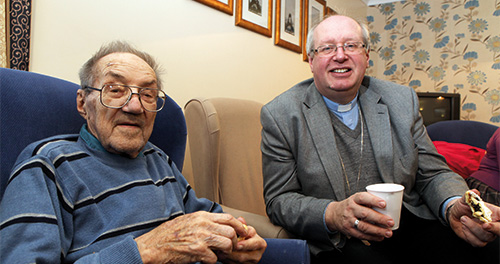- A
- A
- A
Snowflake Moments

A Chaplain in Australia wrote, “That for people with dementia, time is frozen into individual snowflakes which, as soon as they touch the skin, melt and are gone.” It makes sense to me, and helps to explain both the moments of illumination and communication, and the long silences in between.
When thinking about ageing in general or dementia in particular, comments such as this highlight aspects of loss and diminution. But might they not also point out aspects of life wherein older people are most definitely our teachers? Many of us spend so much of our time in busyness, planning what should happen next month or next year, that we miss out on the now – the present moment. And while it might be important to make plans, it is equally important to cherish the unique value of the moment. Sitting with our residents, it is interesting to hear of their plans or of the things they are looking forward to, but many conversations simply concentrate on what is happening now or on what is about to take place. And such conversations can go on for a very long time!
The injunction to ‘be still’ is common in many spiritual traditions. Whether in worship, meditation or contemplation, or simply in resting, it is about being ‘present’ rather than ‘absent’ and about being ‘now’ rather than ‘then’.
As I write this, the real snowflakes are falling outside. Consequently plans are being hastily remade, travel is difficult or perhaps even impossible, and ‘now’ is taking on a completely different perspective. I am powerless to do more than live in the present – and make the most of it.
Revd Dr Keith Albans
Director – Chaplaincy and Spirituality
